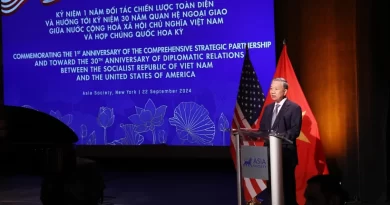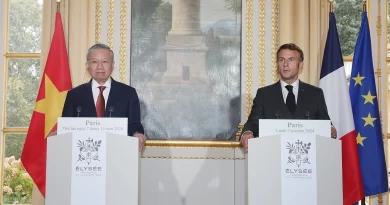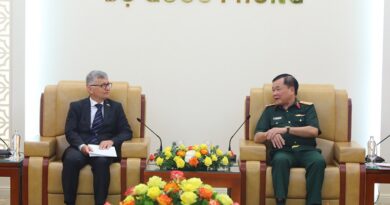President Putin’s state visit to strengthen Vietnam – Russia relations

During his fifth visit to Vietnam on June 19 and 20, President Vladimir Putin, accompanied by a high-ranking Russian delegation, will engage in discussions and meetings with senior Vietnamese leaders, aimed at further enhancing and developing bilateral relations. This state visit, at the invitation of General Secretary Nguyen Phu Trong of the Communist Party of Vietnam (CPV) Central Committee, coincides with the 30th anniversary of the Treaty on Principles of Friendly Relations between Vietnam and Russia and precedes the 75th anniversary of their diplomatic ties in 2025.
Vietnam and Russia established a strategic partnership in 2001, which was elevated to a comprehensive strategic partnership in 2012. Over the years, their relations have seen rapid, comprehensive development, with increased mutual understanding and political trust through high-level visits and exchanges.
The CPV has strengthened its cooperation with major Russian political parties, including United Russia, the Communist Party of the Russian Federation, and A Just Russia – For Truth. Government and parliamentary collaborations have also been promoted.
Vietnam was the first country to sign a free trade agreement with the Eurasian Economic Union (EAEU), to which Russia belongs. Vietnam is Russia’s largest trading partner in Southeast Asia, while Russia ranks among Vietnam’s top five trading partners in Europe. The two countries are involved in several investment projects, particularly in energy, science and technology, and education and training. Defense and security cooperation has also been robust.
In education and science, approximately 5,000 Vietnamese students currently study in Russia. Cultural, sports, and tourism exchanges have been actively promoted, with annual cultural events held alternately in each country. Twenty pairs of Vietnamese and Russian localities have established twinning relationships, and the 60,000-strong Vietnamese community in Russia contributes significantly to the bilateral friendship.
Le Hoai Trung, Secretary of the CPV Central Committee and Chairman of the CPV Central Committee’s Commission for External Relations, highlighted that the relationship between the two countries has developed comprehensively and strongly, bringing practical benefits to their peoples and promoting peace, stability, and cooperation in the region and globally.
During the visit, Vietnamese leaders, President Putin, and the Russian delegation will discuss domestic and international issues of mutual concern, such as maintaining peace, fostering cooperation and development, resolving disputes, and implementing key frameworks like the Declaration on the Conduct of Parties in the East Sea (DOC) towards a Code of Conduct in the East Sea (COC). They will also outline future directions for their all-round partnership.
This visit underscores Vietnam’s foreign policy of independence, self-reliance, peace, friendship, cooperation, development, and the diversification and multilateralisation of external relations. It reaffirms Vietnam’s position and prestige, consistent with the foreign policy outlined at the 13th National Party Congress, and highlights the diplomatic efforts to create and maintain peace while mobilizing resources for national development.
The timing of President Putin’s visit, shortly after starting his new term, signifies Russia’s high regard for Vietnam’s potential, position, and prestige, especially after 40 years of Doi moi (Renewal). It also reflects the visiting leader’s respect for the CPV’s leadership and General Secretary Trong’s significant contributions to bilateral ties.
Given the strong traditional friendship and public support in both nations, President Putin’s visit is a pivotal opportunity to elevate bilateral relations, leverage mutual potential and advantages, and set new cooperation orientations to achieve common goals, benefiting both nations and contributing to regional and global peace, cooperation, and development.


